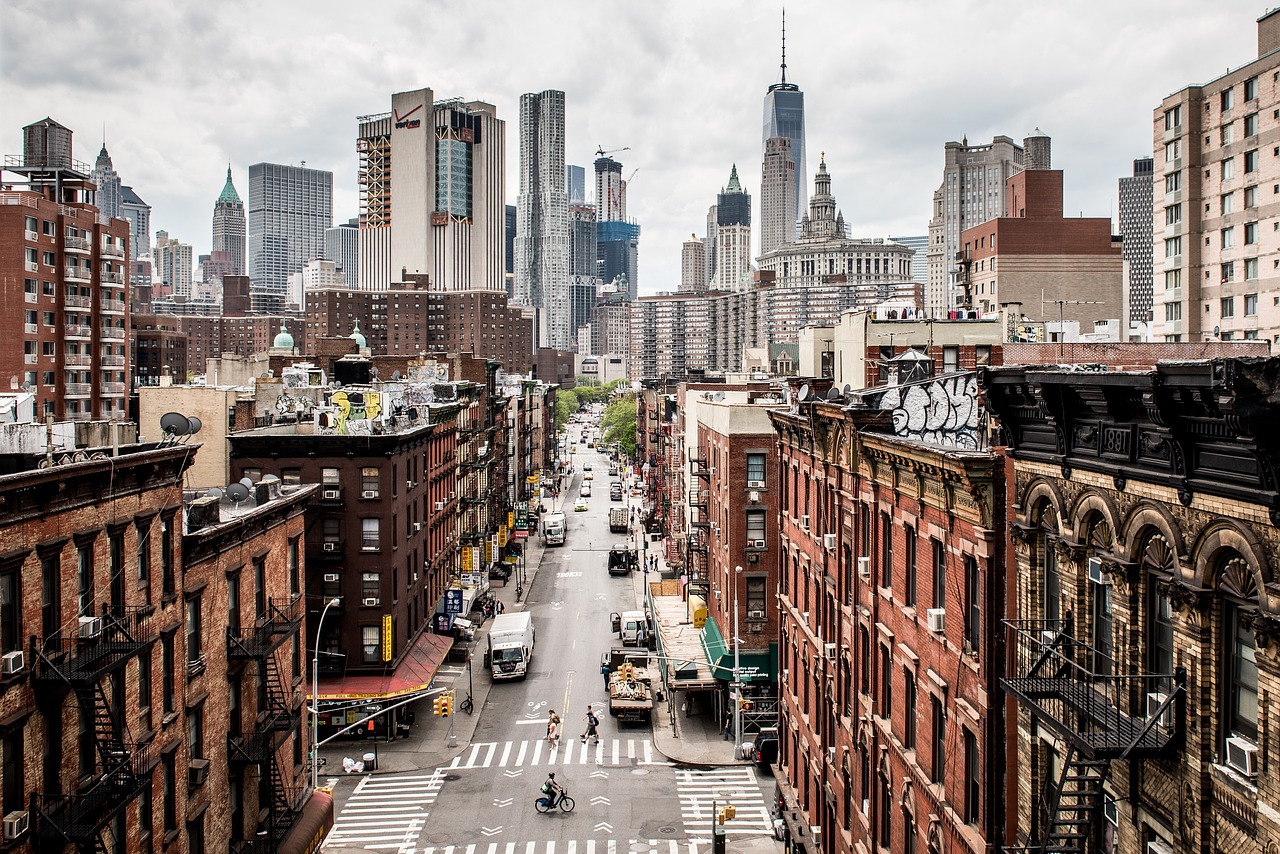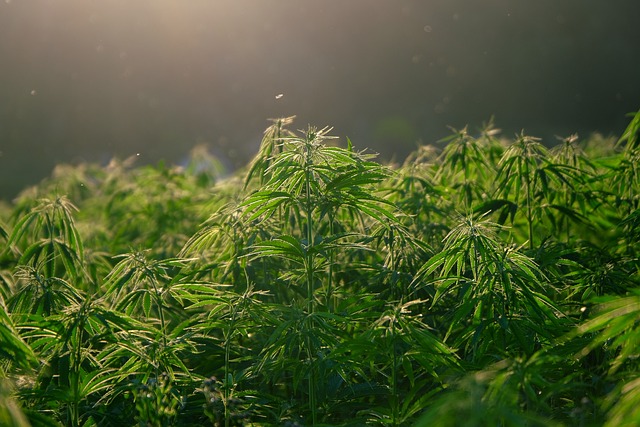Cannabis
Why the Cannabis Industry in New York Run Into Difficulties
As per the Cannabis Growers Alliance, potential losses could reach millions in New York. While over half of U.S. states permit both recreational and medical cannabis, New York stands out with an ambitious plan requiring quality-controlled, traceable, locally grown cannabis for consumers over 21. In the state there are already more than 200 producers and only 23 legal stores selling cannabis,

When New York authorities gave him the green light to legally grow cannabis in the spring of 2022, Marcos Ribeiro thought he had “hit the jackpot” in the lottery, but now that his plants have flowered, like many other growers, he doesn’t know what to do with the harvest.
In a greenhouse on Long Island, a two-hour drive from New York, the grower is working on the final phase of his “Blue Dream” harvest amid hundreds of leafy, fragrant plants that can produce a kilo of cannabis flowers each.
“It’s a very popular West Coast (U.S.) strain, which is smoked during the day. Many people prefer it because they don’t want to doze off,” he explains with a smile, amidst the lush surroundings.
But so far, business is not going as expected for this son of Portuguese immigrants. Raised on Long Island, Ribeiro studied architecture, then set up a masonry company before moving into the hemp business and then cannabis.
Read more about the cannabis industry in New York and find other important cannabis news from around the world with the Hemp.im mobile app, available for free for both Android and iOS devices.

Cannabis legalization in New York: How does the market look
More than two years after the legalization of cannabis use in New York State, Marcos Ribeiro, 40, has invested “hundreds of thousands of dollars,” but the official market, which was estimated to mobilize billions of dollars, suffers major problems. “All this cannabis has grown and there are no stores to sell it in. It’s very stressful,” sighs Ribeiro.
He is not alone. In the state there are already more than 200 producers and only 23 legal stores selling cannabis, in a region of 20 million inhabitants that stretches all the way to Canada. According to official data, some 1.6 million adults confess to consuming the psychotropic.
“Producers could end up cultivating a large amount of product that they will not be able to get to market, generating an enormous fiscal pressure on their businesses in view of the investments made for the cultivation and processing of cannabis,” warns Andrew Rosner, vice-president of the Cannabis Association of New York.
According to another industry organization, the Cannabis Growers Alliance, worst-case losses could amount to millions of dollars.
More than half of the U.S. states have legalized recreational as well as medical cannabis use. But New York has an ambitious plan whereby consumers – over the age of 21 – must have quality-controlled, traceable, locally grown cannabis.
The authorities have given priority to people who have been convicted in the past for cannabis-related crimes in order to repair the impact of the repression that particularly affected people from the black community and those of Latin American origin.
But last August, the courts suspended the opening of new businesses due to complaints from retired U.S. military personnel who felt harmed by being excluded from the business.
Last week, the Democratic-run state finally reached a settlement with the plaintiffs.
“We intend to license at least a thousand businesses in the coming weeks and months,” particularly to “give relief to our growers,” said John Kagia, policy director for the Bureau of Cannabis Management.
Black cannabis market in New York
Meanwhile, New York’s air is already pervaded by the smell of “cannabis”, sold more or less clandestinely in a growing number of unlicensed stores.
To sell his first harvests, Marcos Ribeiro adapted: instead of selling it as flowers for smoking, he entrusted it to a certified processor who extracts the THC oil, the plant’s psychoactive substance to make edible cannabis chewing gum, widely consumed.
David Falkowski (46), another Long Island producer, preserves this dense, copper or brown oil with a potent odor, which can also be used to make lotions, creams, vaporizer liquids or cannabis beverages. He stores it carefully in large jars in a locked wire mesh cabinet in a prefabricated facility on his farm.
Born into a farming family, this man with a large physique and dreadlocked braids gathered in a bun, has always grown vegetables and mushrooms. But he decided to diversify into cannabis, whose soothing properties he firmly believes in. It was a matter of “survival,” he stressed.
“Much of our harvest waits in these jars. Each one can produce 10,000 packs of gum or more. But to cover the costs of (regulatory) compliance, extraction, paying employees, insurance and taxes, we need large volumes,” Falkowski explains. He stresses that they have invested “all our revenues” in cannabis, in particular to finance THC extraction machines.
“The original idea was to add another source of income, but at the moment we are only making a loss,” said David Falkowski.
—
(Featured image by wiggijo via Pixabay)
DISCLAIMER: This article was written by a third-party contributor and does not reflect the opinion of Hemp.im, its management, staff, or its associates. Please review our disclaimer for more information.
This article may include forward-looking statements. These forward-looking statements generally are identified by the words “believe,” “project,” “estimate,” “become,” “plan,” “will,” and similar expressions. These forward-looking statements involve known and unknown risks as well as uncertainties, including those discussed in the following cautionary statements and elsewhere in this article and on this site. Although the company may believe that its expectations are based on reasonable assumptions, the actual results that the company may achieve may differ materially from any forward-looking statements, which reflect the opinions of the management of the company only as of the date hereof. Additionally, please make sure to read these important disclosures.
First published in Semana, a third-party contributor translated and adapted the article from the original. In case of discrepancy, the original will prevail.
Although we made reasonable efforts to provide accurate translations, some parts may be incorrect. Hemp.im assumes no responsibility for errors, omissions or ambiguities in the translations provided on this website. Any person or entity relying on translated content does so at their own risk. Hemp.im is not responsible for losses caused by such reliance on the accuracy or reliability of translated information. If you wish to report an error or inaccuracy in the translation, we encourage you to contact us.

-

 Biotech7 days ago
Biotech7 days agoVolatile Outlook for Enlivex Therapeutics as Investors Await Clinical Catalysts
-

 Impact Investing2 weeks ago
Impact Investing2 weeks agoInter IKEA Launches Electric Truck Fleet to Decarbonize Heavy-Duty Logistics in Italy
-

 Markets2 days ago
Markets2 days agoWeather-Driven Supply Outlook Lifts Coffee Markets in Brazil and Vietnam
-

 Markets1 week ago
Markets1 week agoCotton Market Weakens Amid Demand Concerns and Bearish Trends

























